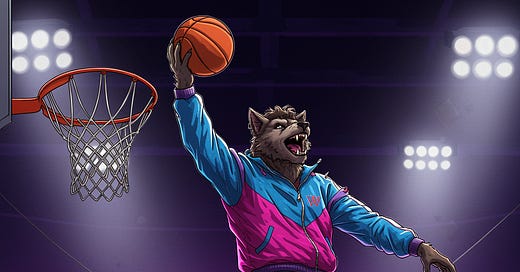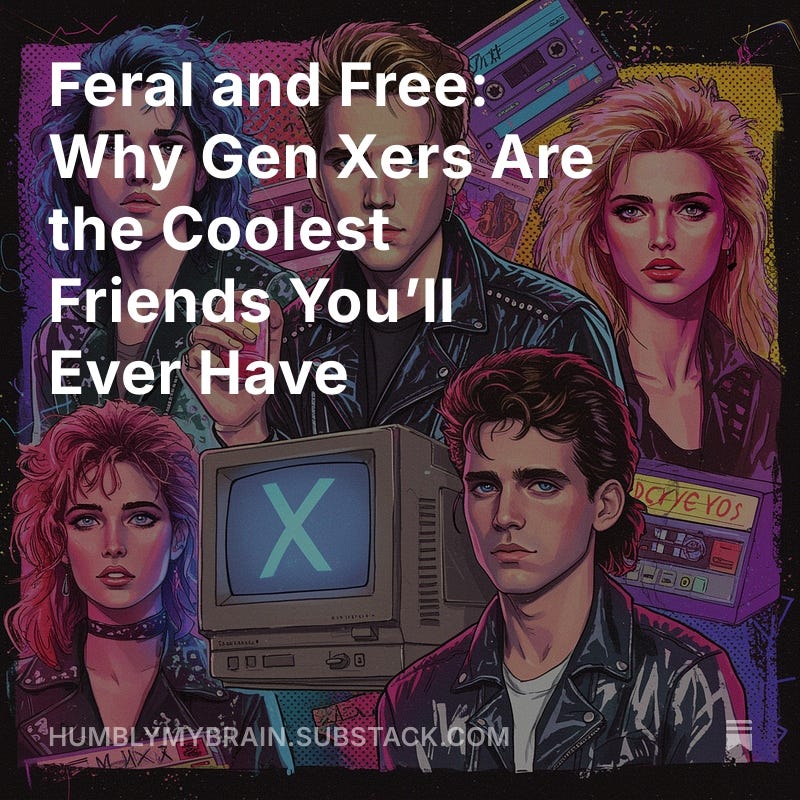GenX: The Werewolf-Whispering Kings of Cool
Generation X, often overshadowed by the Boomers and Millennials, stands out as a uniquely resilient and tolerant cohort. Born roughly between 1965 and 1980, GenXers grew up in a world of shifting cultural norms, economic uncertainty, and rapid technological change. They navigated latchkey childhoods, the rise of MTV, and the dawn of the internet with a laid-back pragmatism that set them apart. But what truly defines GenX as the greatest and most tolerant generation is their ability to roll with the punches—figuratively and, in some cases, quite literally. Take, for example, their fictional yet emblematic response to a teenage high school basketball player who, in a moment of cinematic glory, transformed into a werewolf mid-game. Rather than recoil in fear or judgment, GenXers cheered him on, embracing the surreal without missing a beat.
This scenario, drawn from the 1985 cult classic Teen Wolf, starring Michael J. Fox, serves as a metaphor for GenX’s broader ethos. In the film, Scott Howard’s transformation into a werewolf doesn’t alienate his peers; instead, it elevates him to a local legend. GenXers, much like the characters in this story, didn’t just tolerate difference—they celebrated it, even when it came with claws and fur. When Scott grappled with his new identity, wrestling with self-doubt and societal expectations, GenX didn’t demand conformity. They gave him space to figure it out, trusting he’d find his way. Sure, there were naysayers—a few grumpy coaches or skeptical parents—but GenXers collectively dismissed them as narrow-minded jerks. This wasn’t just about a werewolf on the court; it was about a generation that instinctively rejected gatekeeping and embraced the weird.
This tolerance wasn’t a fluke. GenX grew up amid the punk rock rebellion, the AIDS crisis, and the fall of the Berlin Wall—events that demanded adaptability and an open mind. They watched The Breakfast Club and saw themselves in its misfits, learning early that everyone’s got their struggles, whether it’s detention or lycanthropy.1 Unlike the moral panics of prior generations or the performative outrage of today’s social media age, GenX shrugged off the small stuff. A werewolf dunking a basketball? Cool. A kid with a mohawk? Whatever works. Their laissez-faire attitude wasn’t apathy—it was a quiet, confident acceptance that life’s too short for petty crusades.
Contrast this with the polarized world of 2025, where every quirk risks sparking a culture war. GenX’s chill vibe feels like a lost art. They didn’t need safe spaces or trigger warnings; they just dealt with it. When Scott Howard howled at the moon, they didn’t clutch pearls—they turned up the volume on their Walkmans and kept the party going. And when a few stuck-up types grumbled about “standards” or “normalcy,” GenXers didn’t waste breath debating. They just pointed, laughed, and moved on, secure in the knowledge that the real assholes were the ones who couldn’t handle a little fur.
Today’s generations could learn a thing or two from this. GenX didn’t invent tolerance—they perfected it, with a smirk and a mixtape in hand. They didn’t demand the world bend to their whims; they adapted, improvised, and made it work. So here’s to GenX: the werewolf-whisperers, the slacker sages, the coolest cats of all. The rest of us should take notes.
For another GenX themed article, click here: Feral and Free: Why GenXers Are the Coolest Friends You’ll Ever Have.
John Hughes, The Breakfast Club, directed by John Hughes (Universal Pictures, 1985), film. This iconic GenX film highlights the generation’s empathy for outsiders and their rejection of rigid social hierarchies.





